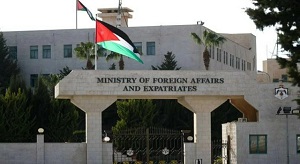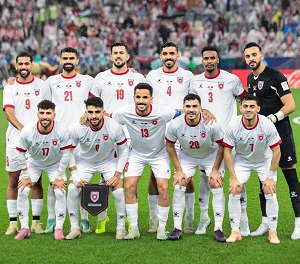IRCKHF publishes policy paper, instruction manual on marriage contract conditions
The Jordan Times
AMMAN — The Information and Research Centre-King Hussein Foundation (IRCKHF), on Tuesday launched a policy paper and a detailed instruction manual on the optimal use of conditions in marriage contracts.
Launched during a conference in Amman, held in cooperation with a consultative committee composed of 22 members representing the Ministry of Awqaf and Islamic Affairs, the Supreme Judge Department, the Iftaa Department, the National Council for Family Affairs (NCFA), the Jordanian National Commission for Women and the Higher Population Council, both the policy paper and the instruction manual are the results of an IRCKHF project that started in 2019.
The conference, which saw the attendance of legal scholars, Sharia experts, professors and deans in faculties of Sharia and Islamic studies, and specialists in women’s studies, evaluated the legal and Sharia regulations related to the stipulations of marriage contracts. The event also focused on procedures associated with marriage contracts.
Head of the Policy and Advocacy Department at the IRCKHF Majed Abu Azzam gave an outline of the project’s phases, which include desk and field research, an awareness stage, and the formation of the consultative committee.
Further, Abu Azzam presented the findings of the 2021 National Survey on society’s knowledge, perceptions and practices relating to stipulations and conditions in marriage contracts, where he noted that a significant number of respondents, both male and female, were unaware of the fact that the Personal Status Law No. 15 permits men and women to add conditions to their marriage contracts.
The Jordanian Personal Status Law No. 15 of 2019 permits both spouses to acquire any permissible conditions in the marriage contract. Article 37 of the stated law regulates and clarifies the conditions made by spouses in the marriage contract.
Speaking during the conference’s first podium discussion, Ahmad Yasin Qaraleh, dean of the Faculty of Sharia at Al al-Bayt University, highlighted that “the conditions in the marriage contract are regarded as an extra level of commitment, aimed to gain maximum advantage,” adding that the conditions also contribute to the clarification of familial and marital relationships.
During the second discussion session, Amer Hafi, professor at the Department of Sharia and Legal Studies at Al al-Bayt University, pointed out that recent discourse on women’s rights appear as if they stem “from an external agenda, but the truth is that women have a prominent place in Islam”.
Hafi added that “women should have a say, particularly… related to one of the most important decisions in their lives, and that is marriage”.
Focusing on the human rights aspect, NCFA Protection Commissioner Nahla Moumani stated that writing down conditions in the marriage contract gives reassurance to both spouses, and positively contributes to obtaining certain rights that are considered essential to either spouse.
Additionally, the policy paper highlighted the position of Islamic jurisprudence and the Jordanian Personal Status Law, as well as focused on the obstacles faced by couples who intend to get married and want to include certain conditions into their marriage contract.
The policy paper also provided legislative and institutional alternatives aimed to promote the optimal inclusion of conditions in marriage contracts, through including various recommendations and examples from other Arab countries.
The recommendations included in the policy paper emphasise the adaption of the instruction manual by the relevant religious agencies, due to its importance in establishing understanding and agreement between spouses.
Latest News
-
 Syria monitor says US strikes killed at least five Daesh members
Syria monitor says US strikes killed at least five Daesh members
-
 Jordan welcomes lifting of US sanctions on Syria
Jordan welcomes lifting of US sanctions on Syria
-
 King hails Nashama achievement, Jordanians’ unity, resilience
King hails Nashama achievement, Jordanians’ unity, resilience
-
 Jordan finish runners-up after extra-time loss to Morocco in Arab Cup final
Jordan finish runners-up after extra-time loss to Morocco in Arab Cup final
-
 Egypt emphasizes 'Israel' gas deal is "purely commercial"
Egypt emphasizes 'Israel' gas deal is "purely commercial"